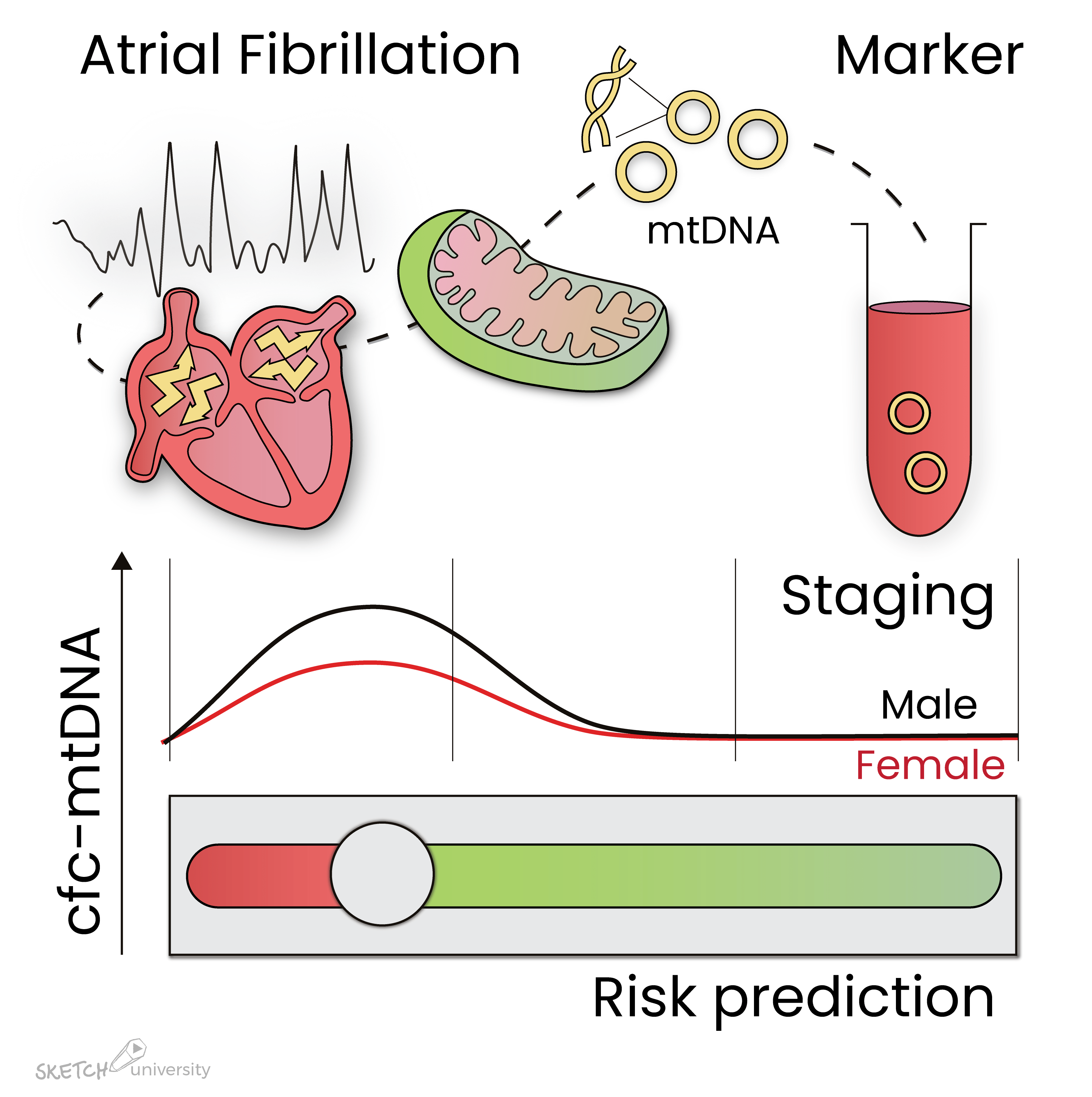What to Do If You Suspect You Have Familial Atrial Fibrillation?
Does the following sound familiar to you?
Atrial fibrillation (AFib) is not an unfamiliar term to you. One of your parents or grandparents also suffers from it. Recently, you’ve been feeling fatigued, dizzy when you stand up, and experiencing heart palpitations. You live a healthy lifestyle without high blood pressure, diabetes, or obesity, and you don’t exhibit common risk factors for AFib. You suspect familial AFib. But how do you explain this to your doctor? Read about familialAFib and our tips in this blog.
Family members with atrial fibrillation
A portion of patients with AFib have inherited it from their parents. About 20% of all those affected with AFib have inherited the gene variant from their parents. It’s not possible to inherit a mutation from a cousin or other more distant relatives; familial atrial fibrillation is always inherited through parents. This gene variant often occurs in close family members, such as parents, siblings, and sometimes grandparents. It is often said that AFib develops later in life. That’s true, but with familial AFib, it’s different. In this case, the rhythm disorder can develop at a much younger age because you have had the gene variant from birth.
Familial AFib arises from mutations in certain genes. Still, you can inherit these gene variants without developing AFib. Sometimes multiple factors play a role in familial AFib. Since 2021, we have been conducting research on familial AFib to gain more insight into the gene variations.
Recognizing the symptoms of atrial fibrillation
You can develop atrial fibrillation due to the gene mutation and you will not necessarily experience the associated symptoms of the heart rhythm disorder. Another possibility is that you could have the same symptoms as someone with “non-familial” AFib. You can recognize AFib by the following common symptoms:
- Heart palpitations
- Fatigue
- Shortness of breath
- Dizziness
- Chest pain
Initiating the conversation with your doctor
Starting a conversation with your doctor due to suspecting AFib can be quite daunting. best to seek help as fast as possible. Especially when you are clearly experiencing symptoms or have a heart rhythm disorder. You also don’t want the doctor to think you are just echoing a family member’s symptoms, as was the case with Manuela. Follow these four tips to help you address the issue effectively.
Tip 1: Prepare thoroughly
Gather all the information you have. We recommend noting when, and after what activity, you feel changes in your heart rhythm. It’s also important to know which family members have atrial fibrillation and at what age it developed. Make a list of all the questions you want to ask the doctor. Sample questions include:
- How is AFib diagnosed?
- Should I change my lifestyle?
- What can I do to reduce my risk of complications?
Tip 2: Bring a family member
It’s helpful to bring the family member with AFib to the conversation. A first conversation may be overwhelming, making it harder for you to retain information. A family member can assist you during the discussion and fill in the gaps where necessary. This will help you remember more details.
Tip 3: Share your heart rhythm abnormalities
Do you have a smartwatch or fitness tracker with ECG? An ECG records your heart’s activity. When you notice your heart has an irregular rhythm, perform the ECG. Save these moments (on your smartphone) and bring them to your doctor’s appointment. This way, you can clearly show your doctor what happens to your heart during an episode.
Tip 4: Request a second opinion
A doctor might not diagnose atrial fibrillation right away. This is due to the fact that symptoms can be general and not only match AFib, but other disorders as well. Therefore, be clear about your family history and concerns. If you still suspect you have a different condition than the one diagnosed by the doctor, request a second opinion. This will provide more clarity.
Ready for the conversation
You are ready to have a conversation with your doctor. If you don’t get the answers you need and are convinced you have AFib, you can seek another doctor, just like Manuela did. Want to read more about others’ experiences? Check out our forum.
Do you know someone who might be interested in this?






